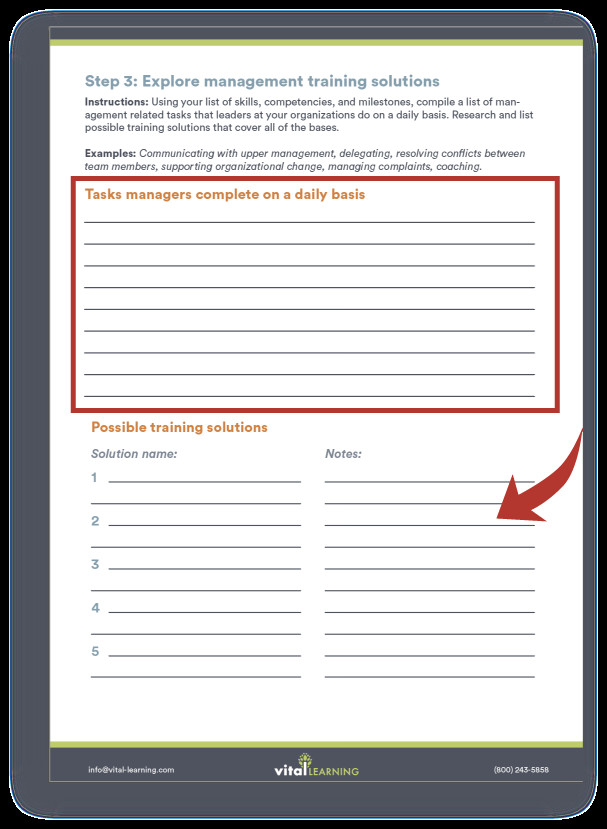Do You Have Plans to Develop a Team of Future Managers?

Do You Have Plans To Develop A Team Of Future Managers? Investing in a robust succession planning process is essential for organizational growth, employee retention, and overall stability. CARDIAGTECH.NET understands the importance of developing strong leaders from within. Equip your team with the best tools and training to excel in leadership roles.
1. Understanding the Importance of Developing Future Managers
Are you ready to cultivate the next generation of leaders within your organization? Developing future managers is crucial for ensuring business continuity, fostering innovation, and maintaining a competitive edge. According to a study by Harvard Business Review, companies with strong succession planning processes are 25% more likely to outperform their competitors.
- Business Continuity: Succession planning ensures that critical roles can be filled seamlessly, minimizing disruptions during transitions.
- Innovation: New managers bring fresh perspectives and ideas, fostering a culture of continuous improvement.
- Competitive Edge: A well-prepared management team can adapt quickly to market changes and drive strategic initiatives effectively.
- Employee Retention: Employees are more likely to stay with a company that invests in their professional development and offers clear career advancement opportunities.
- Cost Savings: Promoting from within is often more cost-effective than hiring external candidates, reducing recruitment and onboarding expenses.
2. Identifying High-Potential Future Managers
How do you spot the individuals within your team who have the potential to become great managers? Identifying high-potential employees requires a keen eye for specific attributes and behaviors.
Attributes to Look For:
- Organization and Focus:
- Managers need to prioritize tasks and track progress on multiple projects.
- Look for employees who demonstrate a systematic approach to their work.
- According to a study by the Project Management Institute, organized project management can improve efficiency by up to 30%.
- Interpersonal Abilities:
- The ability to relate to others and build meaningful relationships is crucial.
- Empathy, understanding, and genuine curiosity about others foster a positive workplace.
- Research from the University of Michigan found that managers with strong interpersonal skills have teams that are 20% more productive.
- Positive interpersonal skills foster collaboration and teamwork, enhancing overall productivity.
- Effective conflict resolution and team-building skills contribute to a harmonious work environment.
- Effective Communication:
- Clear and concise communication is essential for conveying messages effectively.
- Look for individuals who excel in both verbal and nonverbal communication.
- A study by McKinsey found that effective communication can increase productivity by 25%.
- They have effective nonverbal communication skills.
- They seem to be open and honest in their interactions.
- They possess good listening skills and listen actively.
- They communicate their ideas in an organized manner with a singular, obvious message
- Initiative and Action:
- Motivated managers inspire their employees to reach goals and overcome challenges.
- Look for employees who demonstrate commitment to their work and take ownership of their responsibilities.
- According to a Gallup poll, companies with highly engaged employees are 21% more profitable.
- Grit:
- The ability to overcome adversity and find solutions to issues is critical for managers.
- Look for individuals who demonstrate resilience and a willingness to learn from failures.
- Angela Duckworth, a leading researcher on grit, states that gritty individuals doggedly pursue things they value.
- Taking feedback and improving from it is a sign of a great potential manager.
- Those who truly value their work and have the tenacity to ensure the outcome is successful are more likely to be good managers.
Table 1: Key Attributes of High-Potential Managers
| Attribute | Description | Importance |
|---|---|---|
| Organization | Ability to prioritize tasks, track progress, and maintain a systematic approach. | Ensures efficiency, minimizes errors, and supports effective project management. |
| Interpersonal Skills | Capacity to build meaningful relationships, empathize with others, and foster a positive work environment. | Enhances collaboration, boosts morale, and promotes teamwork. |
| Effective Communication | Clear, concise, and persuasive communication, both verbal and nonverbal. | Minimizes misunderstandings, ensures alignment, and facilitates effective coaching and feedback. |
| Initiative | Proactive approach, willingness to take on challenges, and commitment to achieving goals. | Drives innovation, improves problem-solving, and fosters a culture of ownership. |
| Grit | Resilience, perseverance, and the ability to learn from failures and overcome adversity. | Enables managers to navigate challenges, adapt to change, and maintain a positive attitude under pressure. |
 Promote employees with strong interpersonal abilities
Promote employees with strong interpersonal abilities
3. Creating a Path for Promotion
What steps can you take to create a clear and achievable path for promotion within your organization? Developing a structured promotion pathway ensures that employees know what is expected of them and how they can advance.
Steps to Create a Promotion Path:
- Define Milestones:
- Identify the specific skills and competencies needed for each management level.
- Create a checklist of milestones that future leaders must achieve.
- Provide Opportunities for Development:
- Offer training programs, mentorship opportunities, and challenging assignments to help employees develop the necessary skills.
- Regularly Assess Progress:
- Conduct performance reviews and provide feedback to help employees track their progress and identify areas for improvement.
- Communicate Expectations:
- Ensure that employees understand the promotion criteria and the steps they need to take to advance.
- Recognize and Reward Achievement:
- Acknowledge and reward employees who demonstrate the skills and behaviors needed for leadership roles.
By creating a clear path for promotion, you can increase employee engagement, reduce turnover, and ensure that you have a pipeline of qualified candidates for future management positions.
Table 2: Sample Skills Checklist for Future Leaders
| Skill | Description | Proficiency Level Required | Assessment Method |
|---|---|---|---|
| Project Management | Ability to plan, execute, and monitor projects effectively. | Advanced | Project completion rate, stakeholder feedback, adherence to timelines and budgets |
| Financial Acumen | Understanding of financial statements, budgeting, and cost management. | Intermediate | Performance on financial assessments, budget management skills |
| Team Leadership | Ability to motivate, delegate, and manage a team effectively. | Advanced | Team performance metrics, 360-degree feedback, employee satisfaction scores |
| Strategic Thinking | Ability to analyze market trends, identify opportunities, and develop strategic plans. | Intermediate | Contribution to strategic planning, innovative ideas |
| Communication Skills | Clear and persuasive communication, both written and verbal. | Advanced | Presentation skills, written reports, communication effectiveness surveys |
 Create a path for promotion
Create a path for promotion
4. Providing Management Training Tools
What kind of training and resources should you provide to prepare your future leaders for success? Equipping your team with the right management training tools is essential for developing their skills and confidence. CARDIAGTECH.NET can equip your team with the finest diagnostic instruments.
Essential Management Training Tools:
- Leadership Development Programs:
- Structured programs that focus on developing essential leadership skills.
- According to a study by the Association for Talent Development, companies that invest in leadership development are 6x more likely to achieve their business goals.
- Mentorship Programs:
- Pairing future leaders with experienced managers for guidance and support.
- Research from the University of Chicago found that employees with mentors are more likely to be promoted.
- Workshops and Seminars:
- Focused training sessions on specific management topics, such as conflict resolution, communication, and delegation.
- Online Courses and Resources:
- Flexible learning options that allow employees to develop their skills at their own pace.
- Coaching:
- Personalized coaching to help future leaders overcome challenges and achieve their goals.
Table 3: Management Training Solutions
| Training Solution | Description | Benefits |
|---|---|---|
| Leadership Development Programs | Comprehensive programs that cover a wide range of leadership skills, including strategic thinking, decision-making, and team management. | Develops well-rounded leaders, improves organizational performance, and fosters a culture of continuous improvement. |
| Mentorship Programs | Pairing future leaders with experienced managers who can provide guidance, support, and advice. | Enhances knowledge transfer, accelerates skill development, and provides valuable networking opportunities. |
| Workshops and Seminars | Focused training sessions on specific management topics, such as conflict resolution, communication, and delegation. | Provides targeted skill development, addresses specific organizational needs, and promotes best practices. |
| Online Courses and Resources | Flexible learning options that allow employees to develop their skills at their own pace, covering a wide range of management topics. | Offers convenient and cost-effective training, allows for personalized learning, and promotes continuous professional development. |
| Coaching | Personalized coaching to help future leaders overcome challenges, achieve their goals, and develop their leadership potential. | Provides individualized support, enhances self-awareness, and improves performance and effectiveness. |
 Succession Planning Process Template management training
Succession Planning Process Template management training
5. Coaching Future Leaders to Success
How can you effectively coach your future leaders to ensure their success in management roles? Providing ongoing coaching and support is crucial for helping future leaders navigate the challenges of their new roles and develop their full potential.
Effective Coaching Strategies:
- Delegate Management Tasks:
- Provide opportunities for future leaders to practice their skills by delegating real-world management tasks.
- Delegating empowers them to take ownership and apply their training.
- Provide Regular Feedback:
- Offer constructive feedback on their performance, highlighting both strengths and areas for improvement.
- Regular feedback helps them refine their skills and build confidence.
- Offer Guidance and Support:
- Be available to answer questions, provide advice, and offer support as they navigate the challenges of their new roles.
- Guidance and support ensure they feel valued and empowered.
- Encourage Reflection:
- Encourage future leaders to reflect on their experiences and identify lessons learned.
- Reflection promotes self-awareness and continuous improvement.
- Celebrate Successes:
- Acknowledge and celebrate their successes to reinforce positive behaviors and build confidence.
- Celebrating successes boosts morale and motivation.
By providing ongoing coaching and support, you can help your future leaders develop the skills, confidence, and resilience they need to succeed in their new roles.
Table 4: Coaching and Mentoring Best Practices
| Best Practice | Description | Benefits |
|---|---|---|
| Set Clear Expectations | Clearly define the goals, responsibilities, and expectations for the coaching relationship. | Ensures alignment, promotes accountability, and provides a clear roadmap for development. |
| Provide Constructive Feedback | Offer specific, actionable feedback that focuses on both strengths and areas for improvement. | Enhances self-awareness, promotes skill development, and improves performance. |
| Actively Listen | Pay attention to the mentee’s concerns, questions, and ideas, and respond thoughtfully and empathetically. | Builds trust, fosters open communication, and creates a supportive learning environment. |
| Share Experiences | Share your own experiences, insights, and lessons learned to help the mentee navigate challenges and make informed decisions. | Provides valuable perspective, accelerates learning, and helps the mentee avoid common pitfalls. |
| Encourage Reflection | Encourage the mentee to reflect on their experiences, identify lessons learned, and develop strategies for continuous improvement. | Promotes self-awareness, enhances critical thinking, and fosters a growth mindset. |
| Celebrate Successes | Acknowledge and celebrate the mentee’s achievements to reinforce positive behaviors and build confidence. | Boosts morale, motivates continued effort, and strengthens the coaching relationship. |
6. Recognizing Signs of a Successful Succession Planning Process
How do you know if your succession planning process is working effectively? Evaluating the success of your succession planning process is essential for making adjustments and ensuring continuous improvement.
Key Indicators of Success:
- Confident and Effective New Managers:
- New managers should demonstrate confidence and effectiveness in their roles.
- Confident managers lead more effectively and inspire their teams.
- Lower Team Turnover Rates:
- Managers with lower team turnover rates indicate a positive work environment and strong leadership.
- Lower turnover rates save on recruitment and training costs.
- High-Performing Teams:
- New managers should be able to build and lead high-performing teams.
- High-performing teams drive productivity and innovation.
- Employee Understanding of Leadership Requirements:
- Employees should understand what it takes to become a leader within the organization.
- Clear understanding motivates employees to develop their skills.
- Easy Identification of High-Potential Managers:
- You should be able to easily identify high-potential future managers.
- Easy identification streamlines the succession planning process.
If you answered “no” to one or more of these questions, it may be time to make adjustments to your succession planning process. However, if you answered “yes” to all of these questions, congratulations! You have successfully created a basic succession plan and should continue to use and enhance this process.
Table 5: Evaluating Succession Planning Effectiveness
| Metric | Description | Target |
|---|---|---|
| New Manager Confidence | Assessment of new managers’ self-assurance and competence in their roles. | 80% of new managers rate their confidence level as “high” or “very high” after six months in their role. |
| Team Turnover Rate | Percentage of employees who leave a manager’s team within a year. | Reduction of team turnover rate by 15% compared to the previous year. |
| Team Performance | Achievement of team goals and objectives. | Achievement of 90% of team goals and objectives each quarter. |
| Employee Understanding of Leadership Requirements | Percentage of employees who can accurately describe the skills and competencies needed for leadership roles. | 75% of employees can accurately describe the skills and competencies needed for leadership roles, as measured by an annual survey. |
| Identification of High-Potential Managers | Time taken to identify high-potential managers for succession planning. | Reduction of time taken to identify high-potential managers by 20% through the implementation of a structured assessment process. |
 Is your succession planning process working
Is your succession planning process working
7. CARDIAGTECH.NET: Equipping Your Future Leaders
Are you looking for the right tools and equipment to support your future managers in the automotive repair industry? CARDIAGTECH.NET offers a wide range of diagnostic tools and equipment to enhance the skills and efficiency of your team.
How CARDIAGTECH.NET Can Help:
- Advanced Diagnostic Tools:
- Provide your future managers with state-of-the-art diagnostic tools to accurately identify and resolve automotive issues.
- Comprehensive Training Programs:
- Offer training programs on the use of diagnostic equipment to ensure your team is proficient and confident.
- Technical Support:
- Provide ongoing technical support to help your team troubleshoot issues and maximize the use of their equipment.
- Equipment Upgrades:
- Stay ahead of the curve with regular equipment upgrades to keep your team equipped with the latest technology.
- Customized Solutions:
- Tailor solutions to meet the specific needs of your organization and ensure your future leaders have the tools they need to succeed.
Table 6: CARDIAGTECH.NET Products and Services
| Product/Service | Description | Benefits |
|---|---|---|
| Diagnostic Tools | State-of-the-art diagnostic equipment for accurate and efficient automotive troubleshooting. | Improved diagnostic accuracy, reduced repair times, and enhanced customer satisfaction. |
| Training Programs | Comprehensive training on the use of diagnostic equipment, covering basic to advanced techniques. | Enhanced technician skills, improved equipment utilization, and reduced errors. |
| Technical Support | Ongoing technical support to assist with troubleshooting, equipment maintenance, and software updates. | Minimizes downtime, ensures optimal equipment performance, and provides peace of mind. |
| Equipment Upgrades | Regular equipment upgrades to keep your team equipped with the latest technology and capabilities. | Keeps your team competitive, enhances diagnostic capabilities, and improves overall efficiency. |
| Customized Solutions | Tailored solutions to meet the specific needs of your organization, including equipment packages, training programs, and support services. | Ensures optimal fit with your business requirements, maximizes return on investment, and provides a competitive advantage. |
Don’t wait to invest in the future of your organization. Contact CARDIAGTECH.NET today to learn more about how we can help you develop a team of highly skilled and effective managers. Visit us at 276 Reock St, City of Orange, NJ 07050, United States, call us at +1 (641) 206-8880, or visit our website at CARDIAGTECH.NET.
FAQ: Developing Future Managers
1. Why is it important to develop future managers?
Developing future managers ensures business continuity, fosters innovation, and maintains a competitive edge. It also increases employee retention and saves on recruitment costs.
2. What attributes should I look for in potential managers?
Look for individuals who are organized, have strong interpersonal skills, communicate effectively, show initiative, and demonstrate grit.
3. How can I create a path for promotion within my organization?
Define milestones, provide opportunities for development, regularly assess progress, communicate expectations, and recognize and reward achievement.
4. What kind of training should I provide to future managers?
Offer leadership development programs, mentorship programs, workshops and seminars, online courses and resources, and coaching.
5. How can I effectively coach future leaders?
Delegate management tasks, provide regular feedback, offer guidance and support, encourage reflection, and celebrate successes.
6. What are the signs of a successful succession planning process?
Confident and effective new managers, lower team turnover rates, high-performing teams, employee understanding of leadership requirements, and easy identification of high-potential managers.
7. How can CARDIAGTECH.NET help in developing future managers?
CARDIAGTECH.NET provides advanced diagnostic tools, comprehensive training programs, technical support, equipment upgrades, and customized solutions to enhance the skills and efficiency of your team.
8. What are some common challenges in succession planning?
Identifying high-potential employees, creating a clear path for promotion, providing adequate training, and ensuring ongoing coaching and support.
9. How often should I review and update my succession plan?
Review and update your succession plan at least annually to ensure it remains relevant and effective.
10. What is the role of senior management in succession planning?
Senior management should champion the succession planning process, provide resources and support, and actively participate in identifying and developing future leaders.
Don’t wait, contact CARDIAGTECH.NET today at +1 (641) 206-8880 and let our experts guide you in selecting the perfect diagnostic tools and equipment to empower your future leaders! Together, we can ensure a bright and innovative future for your automotive repair business.






